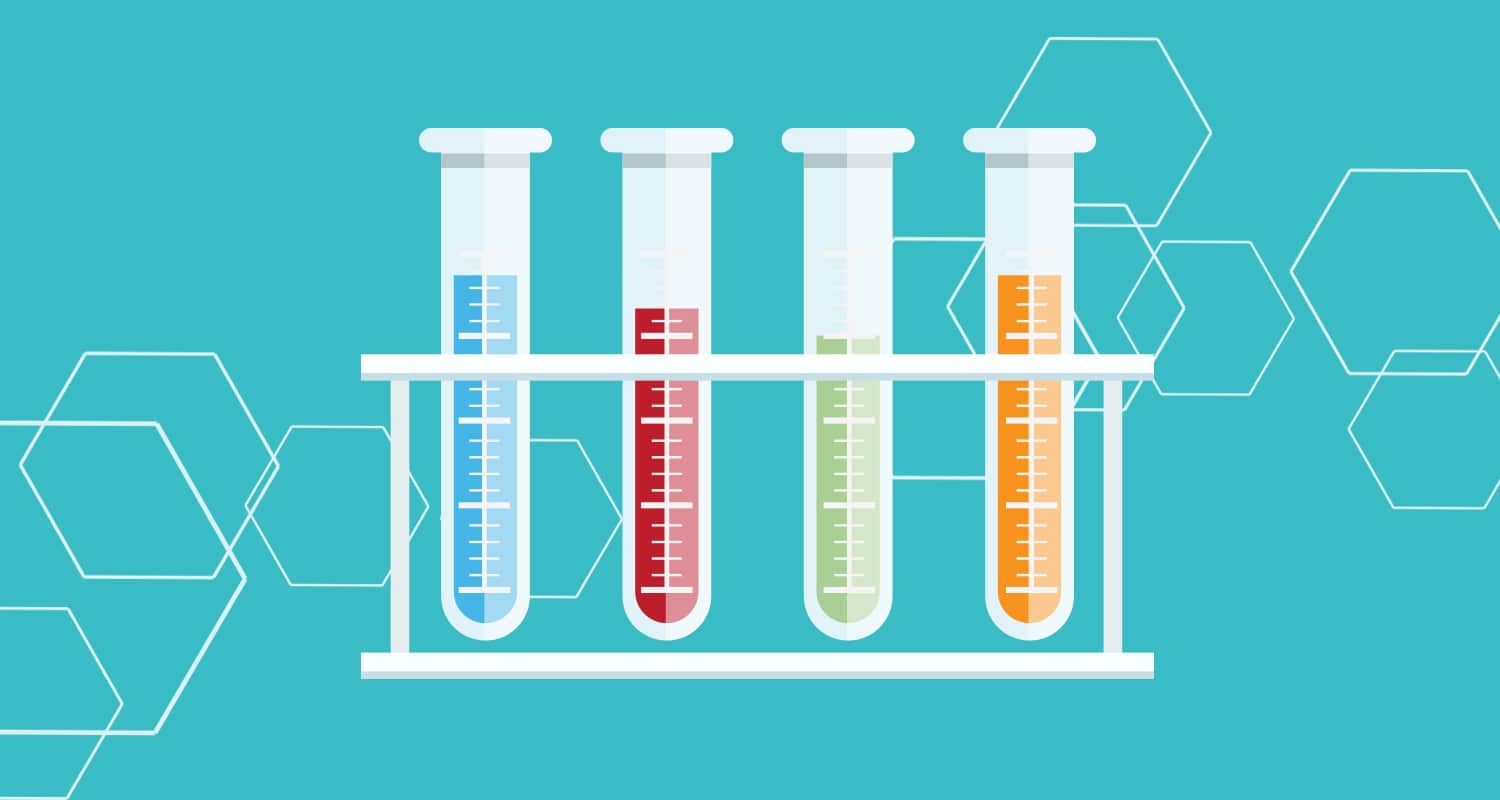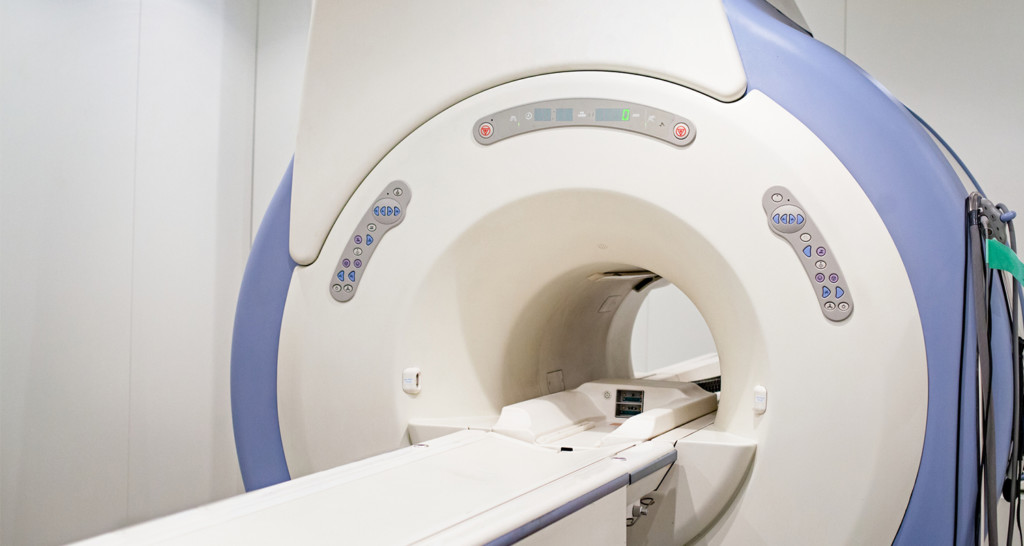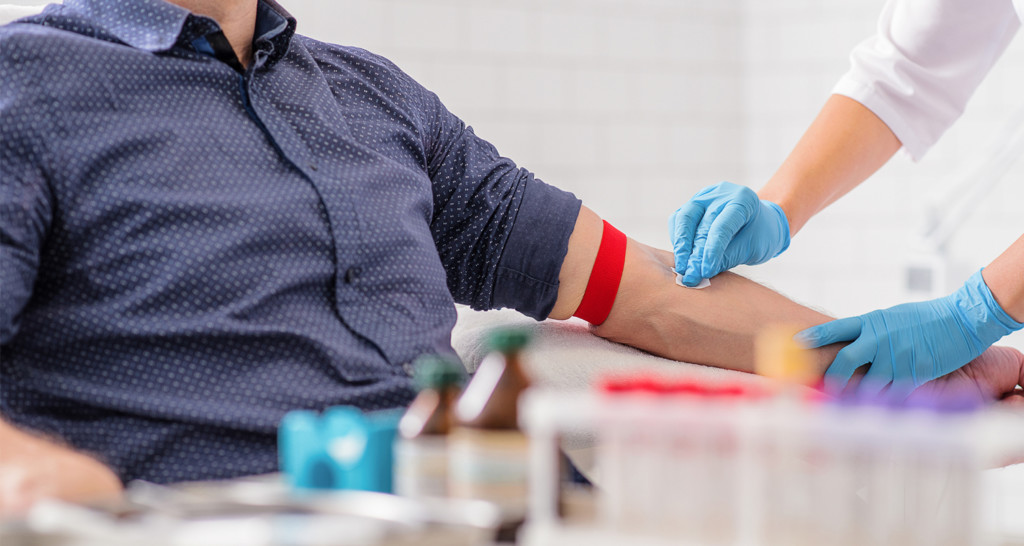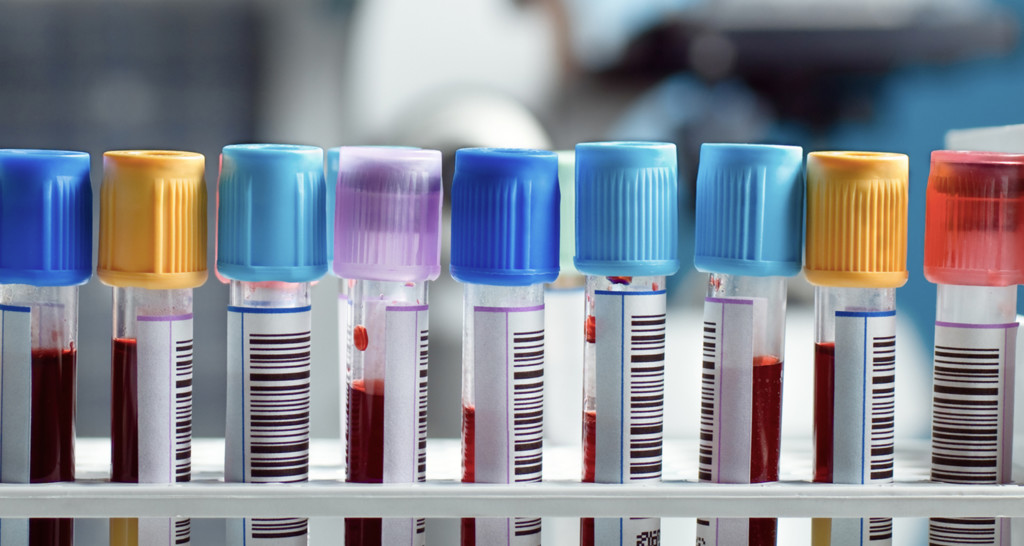
[tldr]
- A lot of people follow general advice on nutrition, exercise, stress management, and sleep, with amazing results. You can stop there…but your body is unique, and fine-tuning your lifestyle to fit your personal biology can make you 30, 40, even 50 percent stronger than you already are. That’s where lab tests are invaluable.
- Three main lab tests that give you a huge return on your investment are an in-depth cholesterol panel, a vitamin D blood test, and a comprehensive blood sugar panel.
- Read on for the details about each lab test, exactly what to say to your doctor, and the optimal results you want to aim for.
[/tldr]
When you first start the Bulletproof Diet, one of the first things you’ll notice is that you feel better than ever. You’ll wake up with boundless energy. You’ll have more mental focus than ever before. You’ll burn fat effortlessly. You’ll sleep better.
Feeling strong is valuable data. It’s a sign that your body is running better than it was, and when you make a big upgrade to your life (like eating right or working out), you’ll notice obvious improvements pretty quickly.
A lot of people stop there. But as good as you feel now, what if you could be another 30 percent better? Or maybe 40 or 50 percent better?
That’s where lab testing comes in. Lab testing is the difference between feeling good and feeling superhuman. Even if you’re doing well overall, maybe your testosterone is a little low, or your thyroid hormones are slightly off, or you aren’t getting enough vitamin D. These subtle changes make a big difference in how you perform over time. Lab testing gives you the data to personalize your lifestyle to fit your unique biology and reach your highest potential.
In a recent Bulletproof Radio podcast episode [iTunes], William Davis — cardiologist and author of the New York Times bestselling book Wheat Belly — shared a list of lab tests that give you the biggest bang for your buck when it comes to improving your biology. Here’s a guide to each of them.
Top lab tests for longevity
Get an in-depth cholesterol test
Cholesterol is misunderstood, and standard cholesterol tests — HDL and LDL — don’t provide any real insight into your cardiovascular function or risk of heart disease. Case in point: low LDL (the “bad” cholesterol that you allegedly want to minimize) actually correlates with higher risk of death[ref url=”http://bmjopen.bmj.com/content/6/6/e010401.full”], and more than 75 percent of people hospitalized for heart attacks had “healthy” cholesterol numbers.[ref url=”https://www.ncbi.nlm.nih.gov/pubmed/19081406″]
There’s much more to cholesterol than your HDL and LDL numbers, and standard cholesterol tests don’t even measure those numbers directly — they’re more of an estimation. Standard cholesterol tests are even more inaccurate if you’re on a low-carb diet, because your blood triglycerides are probably going to be low (which is a good thing), and low blood triglycerides make your LDL numbers appear artificially high.[ref url=”https://www.ncbi.nlm.nih.gov/pubmed/18426324″]
Instead of the standard cholesterol test, choose a nuclear magnetic resonance (NMR) panel for a more nuanced (and actually helpful) look at your cholesterol levels.
The lab test: NMR lipoprotein panel with lipoprotein A, plus a heart scan.
An NMR lipoprotein panel directly measures the number of cholesterol particles you have and separates them out by particle size, which gives you a much clearer estimate of your cholesterol levels.[ref url=”https://www.ncbi.nlm.nih.gov/pmc/articles/PMC3070150/, https://www.labor-gaertner.de/uploads/media/LabInformation_LipoComplete_12.2016.pdf”] You should also get a heart scan to see how much plaque is building up in your arteries.Together, these tests give you an accurate idea of your cardiovascular function and heart disease risk.
Davis has some advice when you’re talking to your doctor about these tests:
“You can ask your doctor to draw [an NMR lipoprotein panel], and he’ll say, ‘Oh, I don’t know what that is,’ or, ‘Insurance won’t pay for it.’ Don’t let him pull that bullsh*t on you, because insurance does pay for it, and I’ve been doing it for over 20 years. It’s relatively easy to interpret.”
Lab test cost: $80-90
Check your vitamin D levels
“Vitamin D is such a huge player in reversing cardiovascular risk,” says Davis. “[Achieving] a vitamin D level of 60 to 70 nanograms per milliliter…was the first time I saw heart scan scores reversed.”
Vitamin D is the most important supplement you can take. It controls the on/off switch for more than a thousand genes and is also a building block for sex hormones like testosterone, human growth hormone, and estrogen. Vitamin D influences your immune system, keeps your inflammatory pathways running properly, and drives calcium absorption so your bones stay strong.[ref url=”https://www.ncbi.nlm.nih.gov/pubmed/15585789″]
Your body makes vitamin D from sunlight, but if you spend most of your day indoors, you probably don’t create enough of it — 41 percent of Americans are vitamin D deficient, and another 40 percent have low vitamin D levels.[ref url=”https://www.ncbi.nlm.nih.gov/pubmed/21310306″]
Supplementing seems like an easy fix. However, you don’t want to take vitamin D with abandon. Your body stores vitamin D; taking too much can build it up to toxic levels and cause thyroid issues.[ref url=”https://www.ncbi.nlm.nih.gov/pubmed/15585789″]
This is where a lab test is useful — you can figure out exactly how much vitamin D your body needs to stay in your optimal range.
The lab test: 25-hydroxy vitamin D blood test.
Work with a doctor to test and optimize your vitamin D levels. You want them to be 60-70 ng/mL.
Lab test cost:~$50
Test your blood sugar and insulin response
Your blood sugar and insulin response measure how well you’re processing carbs. They’re good indicators of your metabolism, and can give you an idea of your risk for diabetes, heart disease, hypertension, and metabolic issues.
Blood sugar issues have a strong genetic component to them. You might be surprised to find you have insulin resistance, even if you’re eating a good diet, exercising, and so on. The good news is there are fixes — but the first step is to see whether you have a blood sugar or insulin issue.
The lab tests: There are three different tests that make up a comprehensive insulin/blood sugar panel. These are:
- Fasting glucose test
- Fasting insulin test
- Hemoglobin A1C (HbA1C)
A fasting glucose test measures the amount of sugar in your blood when you haven’t eaten any food. If your body is running properly, there shouldn’t be much sugar in your blood. The standard range says that anything under 100 mg/dL is good, 110-125 is pre-diabetic, and 125+ is diabetic. You want to be lower than 100, though; getting your fasting blood glucose down to 89 more than halves your risk of diabetes compared to 94-99, and the high 80s is where most metabolically strong people stay[ref url=”https://www.amjmed.com/article/S0002-9343(08)00231-3/fulltext”][ref url=”https://www.ncbi.nlm.nih.gov/pmc/articles/PMC2769652/”].
The next test is a fasting insulin test, which is equally important. Your body is good at compensating; if your blood sugar levels are consistently high, you’ll pump out more insulin to correct the problem, which means you could get a fasting glucose test that comes back totally fine, despite blood sugar regulation issues.
Fasting insulin usually becomes imbalanced long before blood sugar does. A fasting insulin test will tell you if you’re on the road to pre-diabetes, and gives you the opportunity to correct it before it becomes a big issue. A fasting insulin score under 8 is considered normal, but that’s still way too high. Aim for under 4.
The third and final part of a blood sugar panel is the HbA1C test. Your blood sugar levels fluctuate throughout the day in response to food, stress, lack of sleep, exercise, and other lifestyle factors. HbA1C shows you how your red blood cells have been handling sugar for the past 8-10 weeks. Chronically high HbA1C increases your risk of cancer, heart disease, and diabetes[ref url=”https://www.ncbi.nlm.nih.gov/pubmed/26577885, https://www.ncbi.nlm.nih.gov/pubmed/19229228″].
The “normal” range for HbA1C levels is not where you want to be. If you get a 5.7, most mainstream doctors will tell you that’s normal, because it’s an average score for most Americans; that level is actually pre-diabetic (diabetes starts at 6.0).
Aim for an HbA1C result of 5.0 or less. Anything in the 4’s is great. Also, note that if your fasting glucose and fasting insulin levels are both great, your HbA1C may be artificially high, because your red blood cells are surviving for a long time and have the chance to process more sugar over their lifetime, resulting in a higher HbA1c level[ref url=”http://stm.sciencemag.org/content/8/359/359ra130.full”]. If your HbA1C numbers come back high, but your fasting blood glucose and fasting insulin are both ideal, you’re probably okay.
Lab test cost: ~$100
Getting lab work done gives you invaluable data and helps you take your performance from good to superhuman. Find a good functional medicine doctor and order these tests; they’ll help you make your body as strong as possible so you can live longer, and better.













